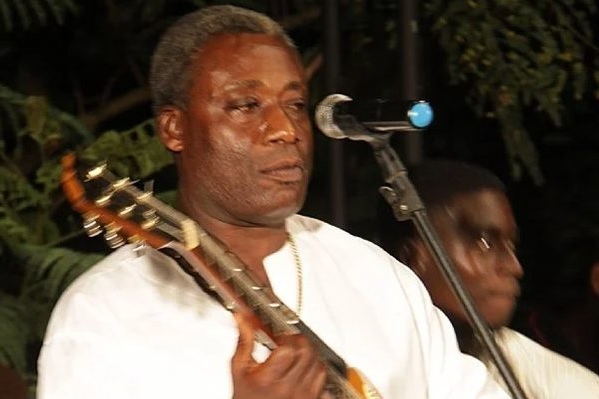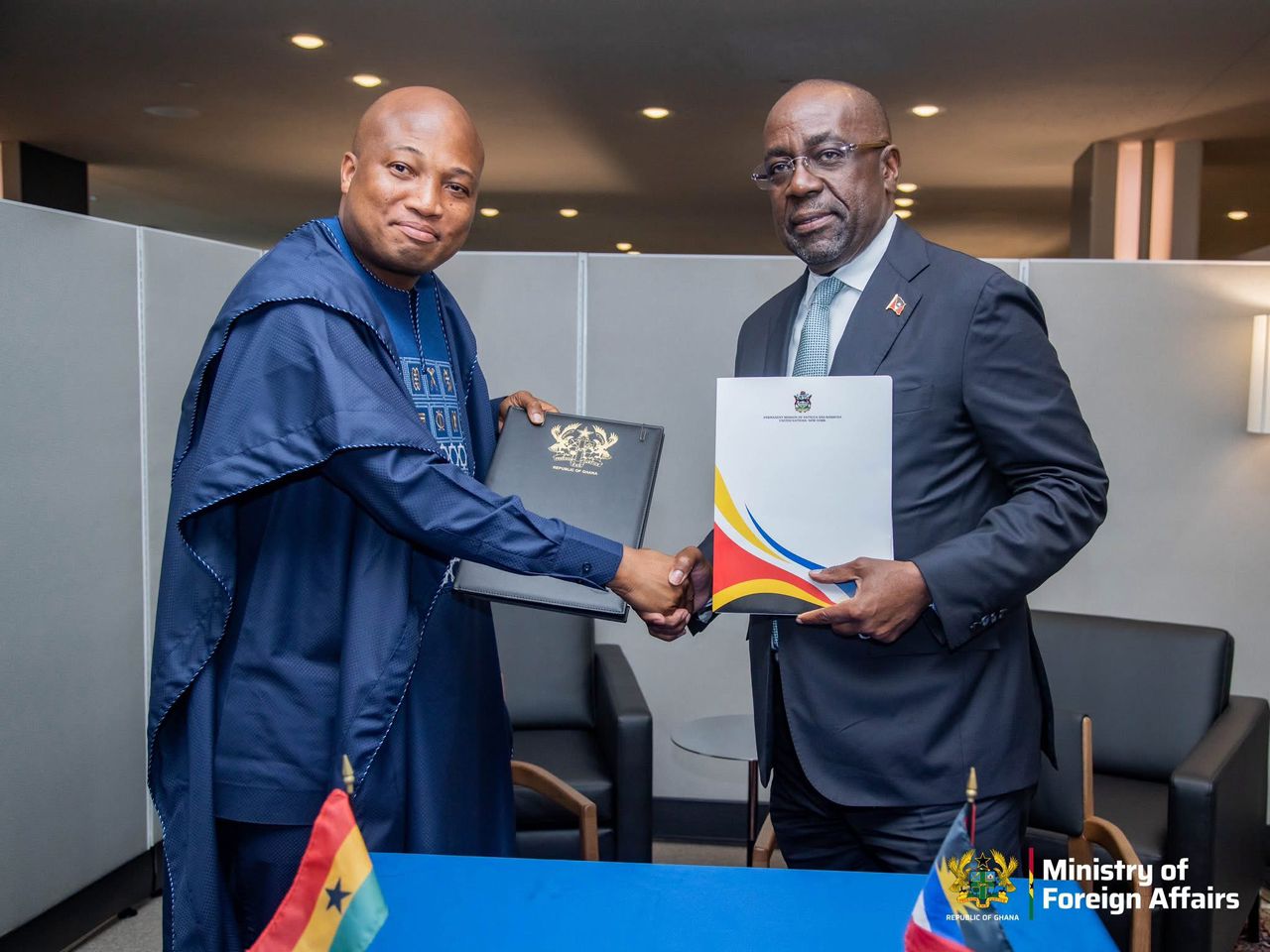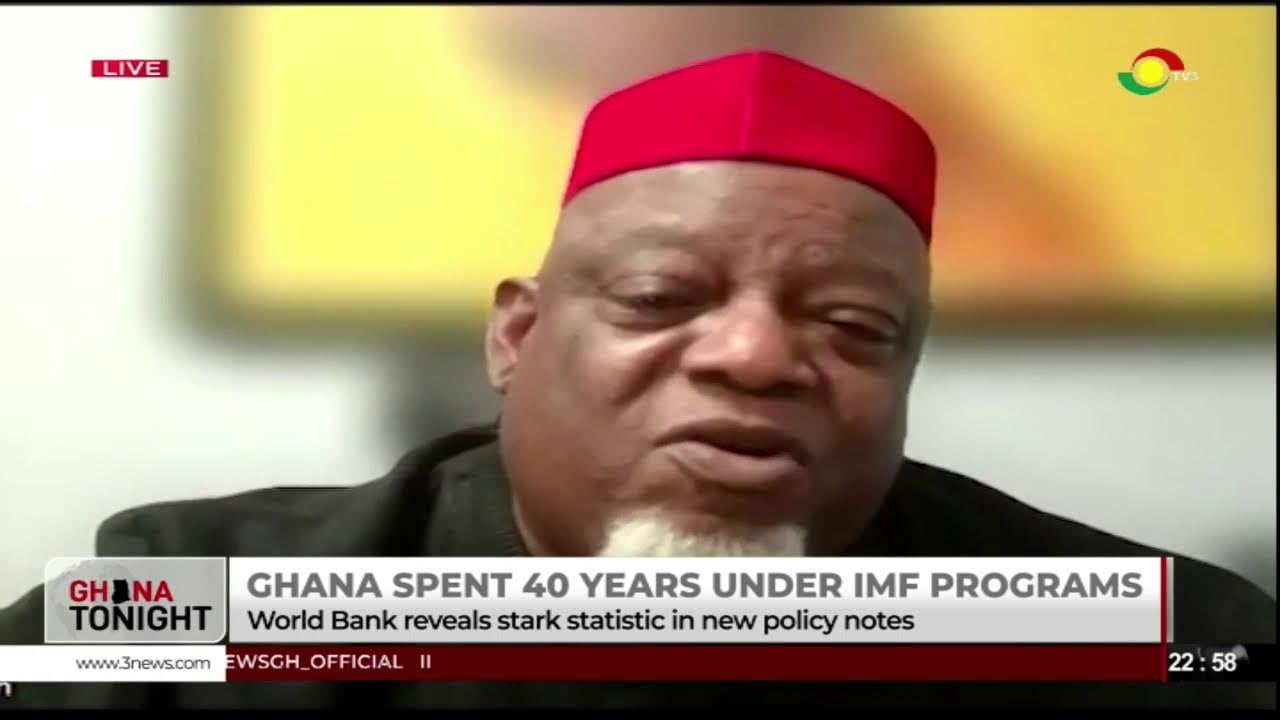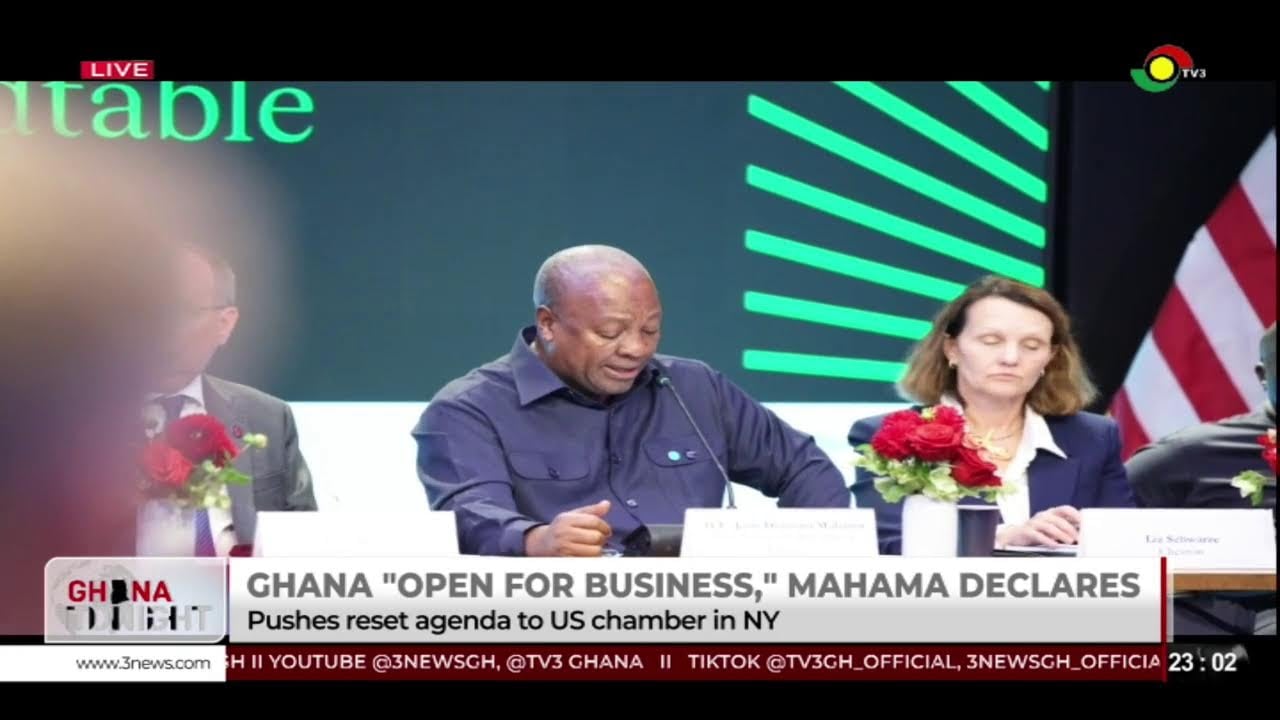
By Juliet ETEFE ([email protected])
The Minister of Communication, Digital Technology and Innovations, Samuel Nartey George, has underscored that the country’s broadcasting and wider media ecosystem future depends on strict compliance with authorisation rules, bold innovation and collective reform across industry stakeholders.
Delivering his keynote address at the Africa Media Bureau Forum in Accra, themed ‘Broadcasting at the crossroads: Shaping Ghana’s electronic media future’, the minister stressed that the country stands at a decisive moment in redefining its media landscape.
“At no point in our history has the question of broadcasting and its future been more urgent than it is today. Broadcasting is not only a channel for information and entertainment; it is also a pillar of national cohesion, a driver of innovation and a safeguard of democratic participation,” he said.
According to him, while the media landscape is vibrant – boasting over 700 FM stations, more than 100 television channels and a rapidly expanding digital ecosystem – compliance and quality concerns cannot be ignored.
“Despite the numbers, challenges persist. Some FM and TV stations remain non-operational years after authorisation. Others face compliance issues relating to licencing, content standards and spectrum use. These undermine both service delivery and public confidence,” he cautioned.
Compliance and policy reform
The minister noted that government, working with the National Communications Authority (NCA), has intensified spectrum monitoring and authorisation audits to ensure only compliant stations remain on air. He urged broadcasters to comply with their regulatory obligations.
“I urge all broadcasting authorisation holders to do what is right. Apply for renewal on time. Pay your fees. Comply with the technical regulations. As your presenters hold the government to account, please ensure you maintain your authorisations in good standing with the regulator,” he advised.
On policy, he disclosed that the ministry is reviewing Ghana’s broadcasting framework to reflect digital convergence realities – where radio, television and internet-based broadcasting increasingly overlap.
“We will take a dispassionate look at the current Broadcasting bill to make it reflective of today’s nuanced realities,” he confirmed.
Financing DTT ecosystem
Touching on sustainability, Mr. George raised concern over the Digital Terrestrial Television (DTT) transmission network which has been financed solely by government since its establishment in 2016.
“The over-45 stations on the platform have not paid any fees for operations and maintenance of the transmission network for almost a decade. The government of Ghana has borne this cost, thereby subsidising private enterprise. This is not sustainable,” he stated.
He announced plans to convene stakeholders and negotiate a fair cost-sharing arrangement, saying: “The free-ride bus is running out of gas and we need to find a sustainable means of fuelling the DTT bus.”
Technology and global best practices
On global trends, the minister highlighted the disruptive influence of artificial intelligence, 5G, automation and hybrid platforms, urging Ghanaian broadcasters to embrace digital transformation and skills development.
“Once you broadcast, the ethics and standards of the craft must govern your operations. I am not speaking of censorship but regulation. The media, be it traditional or new, cannot be said to be above regulation. It cannot be the Wild West where incredulous allegations are made simply for click-bait,” he stressed.
He further condemned the proliferation of money-doubling schemes, exploitative religious broadcasts and sexually explicit content on the country’s airwaves.
“We cannot put today’s profit ahead of tomorrow’s sanity. There must be sanity and we must work together to achieve that,” he declared.
Collective reform
Looking ahead, the minister outlined five priority areas requiring collective industry action: compliance with authorisation conditions; regulatory adaptation to digital convergence; investment in local content and professional standards; adoption of new technologies; and regional cooperation to benchmark best practices.
“The future of Ghana’s broadcasting sector must be anchored in fairness, innovation and resilience. It is our collective responsibility to ensure a media environment that protects consumers, nurtures talent, supports investment and upholds the public interest,” he urged.
He called for deep reforms and consolidation to restore credibility and attract the best talent into the profession.
“We stand at a crossroadsand the decisions we make today will determine the sector’s future -either its survival or complete demise. We must be guided by this ethos, that there can be no higher law in journalism than to tell the truth and shame the devil,” he noted.
Adding to the conversation, former president John Agyekum Kufuor urged Africa to embrace digitalisation as a transformative tool to strengthen public interest media, empower citizens and build continental identity.
He warned that without strong, homegrown platforms, Africa risks being “defined from outside” – stressing the need for networks akin to Al Jazeera or CNN to tell African stories.
With 50 percent of the continent’s population aged 18–35, he said, digital media must be harnessed to unlock youth potential, ensure accountable governance and drive development.
Mr. Kufuor also called on African governments to create enabling policies that allow media to thrive as the fastest tool for education, civic awakening and democratic participation.
The post Future of media hinges on compliance, innovation and collective reform – Sam George appeared first on The Business & Financial Times.
Read Full Story














Facebook
Twitter
Pinterest
Instagram
Google+
YouTube
LinkedIn
RSS